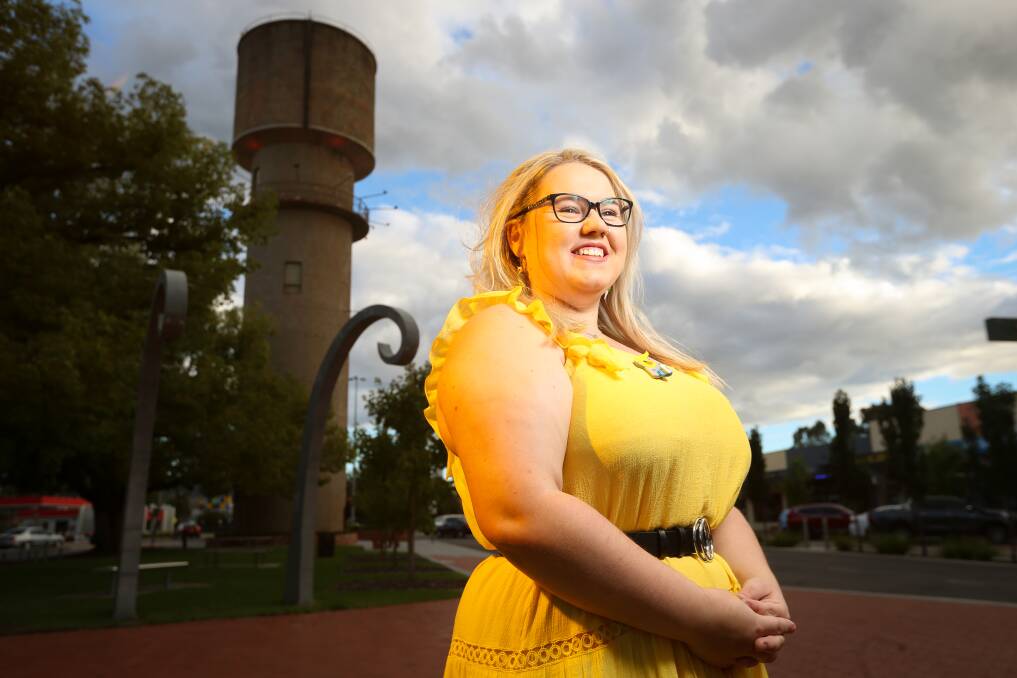
Cassie King wouldn't wish endometriosis on her worst enemy. The 28-year-old lives with the severe pain and misconceptions of the invisible condition daily.
Subscribe now for unlimited access.
$0/
(min cost $0)
or signup to continue reading
"People may not see it at all, but it's there constantly," she said. "It really affects people's lives."
Albury's Entertainment Centre and Wodonga's Water Tower shone yellow this weekend as part of a nationwide Endometriosis Australia Endo Enlightened campaign.
Miss King said it was important to shine a light on the hidden illness.
"A lot of us put on such a brave face," she said.
"We might be in constant pain but we still have to go on with life. We still have to work, we still have to act like normal humans but really we're struggling.
"Every decision you make you have to take into account endo. It's always there, it's chronic, it doesn't go away and there's no cure."
Endometriosis occurs when the tissue - endometrium - which usually lines the uterus grows elsewhere in the body.
Like endometrium in the uterus, the tissue elsewhere also thickens and bleeds.
IN OTHER NEWS:
With no way to exit the body is can lead to cysts, scarring on nearby tissue or adhesions.
Since her diagnosis Miss King has had four laparoscopy surgeries.
"You get pain during your period, you get pain when you don't have your period," she said.
"You have pain and cramping so severe you can't get out of bed, the fatigue is also terrible. Some days you can't get up because the pain is shooting down your legs and back."
Endometriosis affects one in nine Australian woman, 11.4 per cent.
Generally there is a 6.5 year delay on diagnosis because people rarely recognise the condition and the pain women feel is often dismissed as 'period pain'.
Miss King was diagnosed at 19 years old, but had been experiencing symptoms since her early teen years.
"There was four or five years of me going to different doctors saying something is wrong," she said.
"A lot of GPs just didn't know what it was and thought it was all in my head or I couldn't be in that much pain, it's just my period."
Over the past couple of years awareness around endometriosis has definitely grown, Miss King said. But she believes there are still a lot of misconceptions in the community especially in workplaces with many employers still dismissing the seriousness of the chronic condition.
After being diagnosed Miss King couldn't find any local peer supports so created a Facebook group, Albury Wodonga Endometriosis Support Group, where women can ask questions and share experiences with the same condition.


